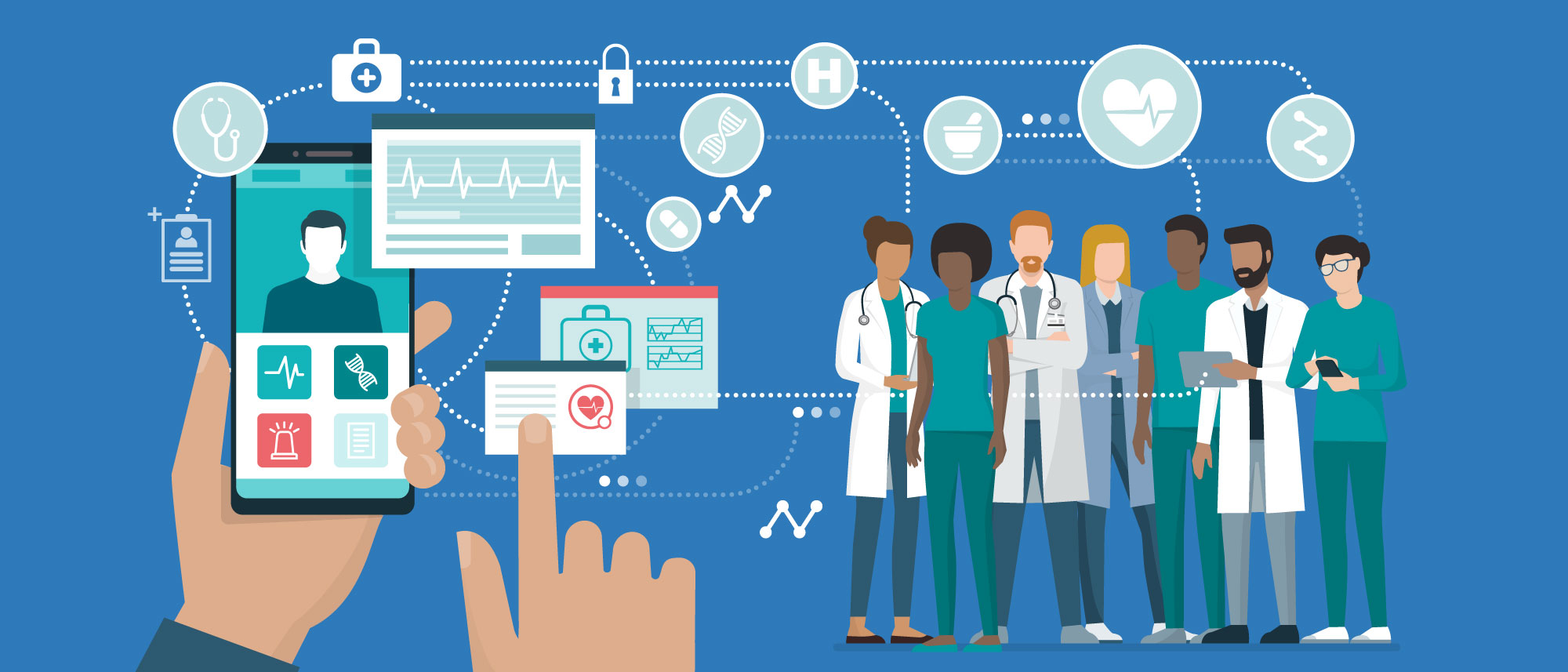It’s increasingly difficult to block out all the hype surrounding blockchain, the global online database that continuously grows by adding to its list of records to create an immortal, undisputed digital record that is linked and secured using cryptography. With more than $1.3 billion invested globally so far in the first five months of 2018, VC funding for blockchain has already surpassed the total for the entire year of 2017 alone. Clearly blockchain is no flash in the pan. The technology, which is overwhelmingly perceived as only dealing with cryptocurrencies like Bitcoin, is actually starting to wrap its chains around the healthcare industry and bring some much welcome digital transformation.
A huge obstacle in the path toward fully-realized digital solutions for healthcare is data. Many healthcare providers are inundated by massive amounts of data that clog processes, disrupt systems and ultimately diminish patient care. Without an effective means of sifting, organizing and analyzing this data, the healthcare industry is unable to truly achieve a seamless, patient-first experience. The diagnosis for this troublesome ailment could in fact be blockchain.

Nebula Genomics and Longenesis recently announced a partnership where the two leading healthcare technology firms will apply AI and blockchain technology to develop a platform for individuals and large data providers to store, manage, exchange and profit from clinical data and genomics. To achieve this data acquisition automation, the project will utilize smart contracts, which are automated, blockchain-powered software programs that act as regular governing contracts in order to create a blockchain-based platform that can store and exchange clinical data, such as lab test results.
So, what does this mean for healthcare providers? By leveraging technology like blockchain in order to automate data collection, healthcare workers can place their focus squarely back on where it belongs: the patient. No longer will healthcare workers be plagued with time-consuming, mind-numbing manual tasks like data entry and organization. Instead, they’ll be freer to interact with patients and provide more high-quality medical care. In terms of business value, this increased data efficiency can speed up data extraction, increase interoperability, transform business operations and offer illuminating healthcare insights.
If access to and organization of data undermines successful healthcare digital transformation, then perhaps the automation of these laborious processes could bolster human potential. For example, letting machines do all the “heavy lifting” when it comes to data management means that health records and clinical data are consolidated and organized much faster, and there’s no need for healthcare employees to waste time collecting this information from patients. Rather, this project hopes to incentivize people to provide their genomic data and information in order to offer more specialized, individual healthcare. In turn, this could potentially boost the groundwork and efficacy for more clinical studies, leading to greater advancements and breakthroughs in healthcare—all accomplished by medical professionals who now have more time to devote to research and cutting-edge treatments thanks to automation.

The vast potential for a project like this is quite staggering. Already, the term “life data economics” is being buoyed around to define this process of using blockchain to essentially build a marketplace for clinical data. The goal of this blockchain-fueled marketplace is to create a singular data network that can conveniently and securely be accessed only by medical researchers that will thus result in an equitable economy for genomic data. Of course, thanks to recent events like the Facebook/Cambridge Analytica scandal, people are extremely wary of offering their data up to companies and third-parties.
Those with concerns about their private medical data being stored and potentially shopped around aren’t unfounded by any means. In order for this type of project to truly be a success, a patient-centric design thinking approach must be implemented in order to protect against the risk of this clinical data to be misused and sold to malicious actors. It’s undoubtedly going to be a big pill to swallow – the surrendering of personal medical information for revolutionized healthcare and a better patient experience. Whether or not you agree with the ethics or sentiment behind a data collating project like this, one thing is for certain: blockchain is fueling an exciting and irrefutable—albeit controversial—road toward healthcare’s digital transformation and future.
Related Links:
-
Turning Your Abundance of Data into Valuable Healthcare Insights




























Share this: